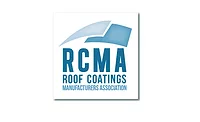RCMA Hosts Legislative Fly-In For the Roof Coatings Industry
WASHINGTON, DC – Members of the Roof Coatings Manufacturers Association (RCMA) met with their congressional representatives on Capitol Hill on June 21 as part of the Association’s 2017 Summer Meeting and Legislative Fly-In.
The fly-in entailed paying visits to Members of Congress and key congressional staff from the numerous states and districts of RCMA’s collective membership. RCMA scheduled meetings with dozens of congressional offices, providing its members with the opportunity to foster relationships with lawmakers and inform Congress exactly how its policies impact their businesses.
“The RCMA Legislative Fly-In presented a unique opportunity for members to open a dialog with senators, representatives, and legislative staff to affect meaningful change in issues impacting the roof coatings industry,” noted RCMA Executive Matt Coffindaffer. “RCMA will carry their message forward through continued involvement with these congressional offices.”
RMCA members discussed two critical issues of interest to the roof coatings industry: supporting the Regulatory Accountability Act and advocating for continued federal funding for the EPA ENERGY STAR® program.
“Our members were excited to share their unique perspective on how the roof coatings industry impacts the U.S. economy and how Congress may enact opportunities to allow this industry to flourish,” claimed RCMA Director of Legislative and Regulatory Affairs Chelsea Ritchie.
The Regulatory Accountability Act is a bipartisan initiative that supports common-sense regulatory reform. It applies to a very small group (only three percent) of total regulations that cost over $100 million. Senators Rob Portman (R-OH) and Heidi Heitkamp (D-ND) are dedicated to holding agencies more accountable for their decisions and allowing for regulations that are better-tailored to achieve their purpose without unnecessary burdens on the public. RCMA supports RAA because it allows for a more robust public review process and makes certain that regulators are pursuing the most cost-effective regulatory approach.
“First, it begins with an understanding of the cost-benefit analysis on how a small set of regulations largely impact American workers and our nation’s economy,” noted Ritchie. “Next, we have to advocate for the agencies and regulations that have a positive impact on our industry, and others that largely hinder its growth.”
ENERGY STAR® products are the ideal combination between energy efficiency and the economy. $50 million in annual federal investment saves consumers on average over $14 billion annually. Despite its bipartisan support and proven success in creating jobs, Trump’s Administration has proposed to slash the budget, harming the progress of RCMA members that manufacturer ENERGY STAR products. RCMA supports ENERGY STAR® because it is a cost-effective, market-based tool for saving money, reducing harmful emissions, and strengthening energy security.
“For over 30 years, RCMA members have provided key insight and opinions to U.S. government agencies,” said Ritchie. “We know that programs, such as ENERGY STAR® work because of its cost saving reputation with the consumer and that brand awareness from a government entity that makes manufacturers proud to support the label.”
For more information, visit www.roofcoatings.org.
Looking for a reprint of this article?
From high-res PDFs to custom plaques, order your copy today!




